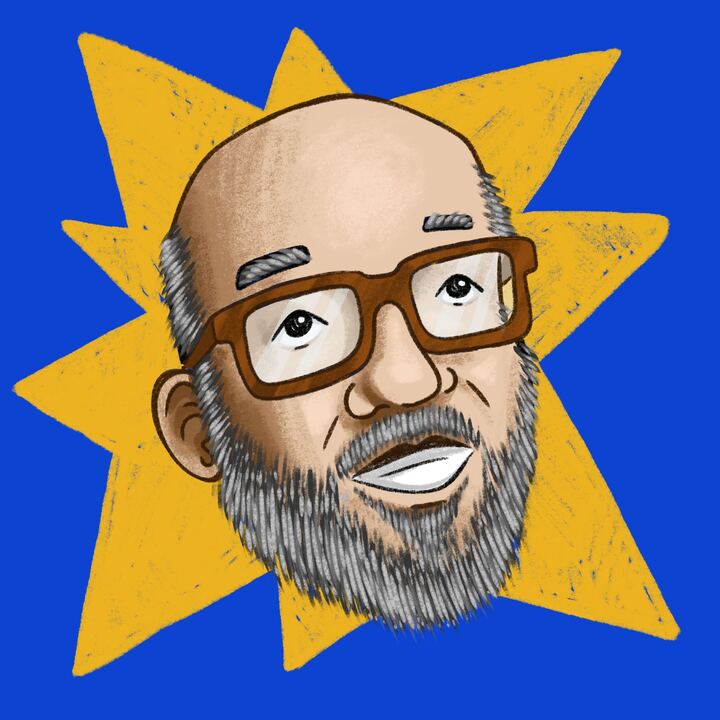Scene
David Cross on comedy, college, and carving his own path

Anna Dorsey | Student Life
David Cross is a comedic juggernaut. From his Emmy-nominated sketch series with Bob Odenkirk, “Mr. Show,” to his iconic role as Tobias on “Arrested Development,” to his more infamous role as record label CEO in “Alvin and the Chipmunks,” Cross’ comedy has dominated the not-so-mainstream. Cross began as a stand-up comedian and has been performing ever since. You can find his latest special, “Worst Daddy in the World,” here. And on Friday, Oct. 11, Cross is coming to St. Louis to perform at the Delmar Hall.
At the show, audience members can expect a variety of anecdotal moments from Cross’ life. To kick things off, Cross tells a story about an email interaction with a person who wants to buy his house, but from there, the routine branches out, not necessarily sticking to a single theme.
“[The show’s content is] a little amuse-bouche, you could say…I get into this story that’s pretty long, and it’s all true; it’s really fun to do … and it goes off on these tangents and ideas,” Cross said.
As an experienced comedian, Cross has fine-tuned the skill of connecting funny stories to create a good flow. In this show, for example, Cross talks about his trip to Peru with Bob Odenkirk and their hike up Machu Picchu.
“I use it as a thread for some of the bits that didn’t have context to it before, but now, because of this experience, they do,” he said.
But, Cross added, the show is only so rehearsed. It’s not a stagnant, scripted performance, and his material changes from show to show.
“Who knows what’s gonna happen by the time I get to St. Louis?” Cross said.
It has been a long journey for Cross to get to this point in his career, and he’s taken an untraditional path. Out of high school, Cross did not go straight to college. Instead, he worked for a lawn care company, and then he moved to New York for comedy. When Cross eventually decided to give college a shot, he attended Emerson College in Boston, but dropped out after one semester.
“I knew I wanted to move to New York or Boston and knew I wanted to do something in comedy, film, etc. I applied to NYU and didn’t get in, but I did get into Emerson … I don’t think I would have had the same kind of success in New York [as I had in Boston] had I gone [to NYU].”
Cross had a ton of fun in the city, engaging in the 1980s music and comedy scene, but knew early on that Emerson was not the place for him. He was a film major going into debt and felt unsupported by professors.
“I’m spending literally every penny I’ve saved up and borrowing money. I got Pell Grant and loans. I was in my first film class and my teacher goes, ‘Film isn’t really my forte, I do jazz radio.’ So I dropped out very quickly,” Cross recalled.
After dropping out, Cross stuck around Emerson and continued working for the university sketch comedy group. Cross said dropping out allowed him to save “a shit load of money, and I got the same education I would have.”
Though untraditional, his journey certainly paid off. Now, at this point in his comedic career, Cross is a seasoned performer who is able to experiment and isn’t afraid to challenge people with his comedy. For Cross, comedy isn’t about pleasing people, and he isn’t phased by college crowds, which can be more combative.
“I’d be a different person and a different comedian if I cared more about that stuff,” he said. “The show is more interesting … [when you] go up there and challenge people. I wouldn’t want to do it every show, but when you’re on a tour doing 70 shows, you’re like, ‘Great, change it up.’ And I don’t care what some well-intentioned, somewhat-ignorant, but know-it-all college student cares about my position on whaling.”
Naturally, Cross doesn’t want to cross the line between challenging the audience and actual fighting, but he doesn’t shy away from audience interaction.
“I’ve always been open to the opportunity to talk to people during the show, too. I don’t really stick to the script as it were,” he said.
A huge part of comedy is the community, and the people Cross worked with in the ‘80s helped to pioneer “alternative comedy,” which is comedy outside of a comedy-club format that strays from the mainstream at the time of its creation. During the mid-to-late ‘80s, most live comedy was being performed in comedy clubs that had a set format that was restrictive to Cross and his peers, who wanted to do standup.
They weren’t getting spots at comedy clubs like “Improv” and “Comedy Store,” so instead, they adapted and performed wherever they could — for example, in the back of a Chinese restaurant.
“Nobody at any point in time went, ‘Hey, we’re being alternative to the common comedy-club experience,’” Cross said.
As for finding people to break out of the mainstream with, Cross likened finding community to grade school.
“You don’t have to go searching too hard. It’s like when you’re the new kid at school — it’s third grade and at first, you’re like, ‘I don’t know what’s going on, and who are these people?’ Eventually, the kid who’s also a comedy nerd finds you or you find him or her,” Cross said. “You hang out and you create things together, and it’s just that, but as an adult.”
A community of comedy enthusiasts will be at Cross’ show this Friday. You can find more information about tickets here.
